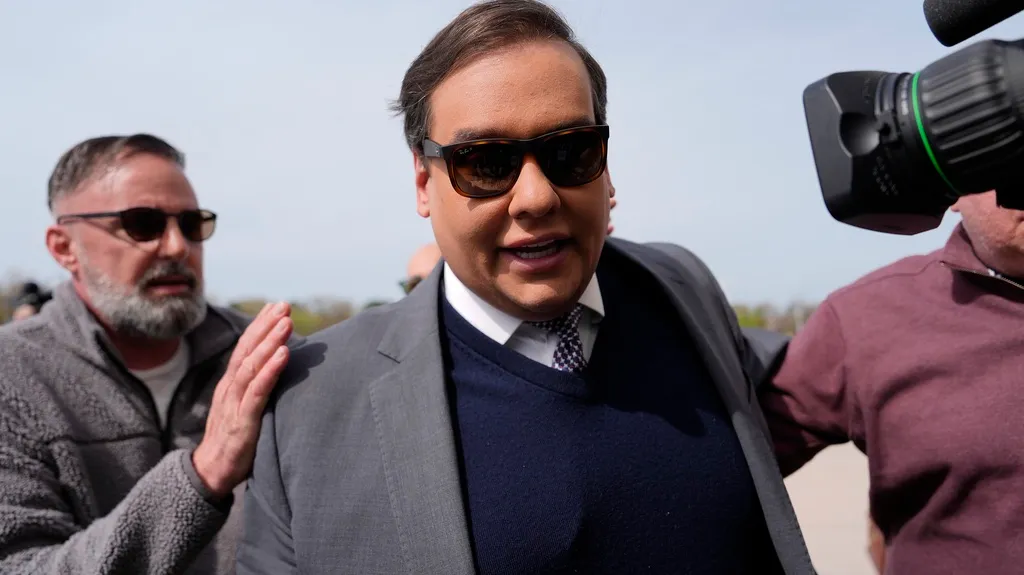December 17, 2012
Supreme Court Showdown: DOMA and Prop 8
Chris Sosa READ TIME: 7 MIN.
Advocates have been left energized but wary following the Supreme Court's Dec. 7 announcement that it will weigh in on a pair of cases regarding state and federal marriage laws.
By June 2013 the Supreme Court's nine justices will determine the constitutionality of the federal Defense of Marriage Act as well as California's Proposition 8 in two decisions that could be just as sweeping in scope as halting to a movement ''with the wind at its back.''
Few were surprised by the high court's decision to take up United States v. Windsor, which surrounds the 1996 Defense of Marriage Act that forbids federal recognition of same-sex marriages. Under Section 3 of DOMA, married same-sex couples are denied the federal benefits enjoyed by their heterosexual counterparts.
The Windsor case was one of several concerning DOMA petitioned for review by the Supreme Court. Federal judges across the country have struck down DOMA as unconstitutional and discriminatory in recent years.
Indeed, the Windsor case also has a human story worthy of the struggle endured by millions. Edith Windsor has been challenging DOMA since 2010, following the death of her wife, Thea Spyer. Windsor is suing to recoup about $363,000, the federal estate tax she was forced to pay on her ''inheritance'' from Spyer. The federal government does not tax wealth that passes to a surviving heterosexual spouse. Because of DOMA, however, the federal government has refused to recognize Windsor and Spyer's marriage. According to the American Civil Liberties Union, which is assisting Windsor in her suit, payment of the federal estate tax is one of the most damaging impacts of DOMA.
Living most of their lives in New York City's Greenwich Village, Windsor and Spyer were engaged to marry in 1967, and finally realized that dream with a Canadian wedding license in May 2007. Nevertheless, Windsor's lawyers point out that DOMA requires the government to view the couple as legal strangers.
The case that left advocates nervously excited on Friday, however, was not the DOMA case, but the Proposition 8 case. While legal experts predicted the court to take up at least one DOMA case, few predicted the court to take up the Proposition 8 case.
The Supreme Court's decision to hear Hollingsworth v. Perry comes after the California law was struck down by the Ninth Circuit Court of Appeals. Supporters of Proposition 8 petitioned the case after the court of appeals refused to rehear the case in June with the hope that the Supreme Court will reverse the lower court's decision and keep the amendment intact.
The appeals court ruled in February that California could not take away rights that the state had previously granted to residents. That ruling came after a U.S. district court also struck down Proposition 8 in 2010, but on much broader grounds that no state could deny same-sex couples the right to marry.
In 2008, voters in California approved Proposition 8, amending the state constitution to ban same-sex marriage after the state had already granted same-sex couples the right to marry.
Although the Supreme Court could rule narrowly, it could also rule sweepingly in a decision reminiscent to the 1967 decision in Loving v. Virginia, which declared that laws restricting interracial marriage violated both the Due Process Clause and the Equal Protection Clause of the 14th Amendment.
Should the high court take the sweeping route and make a ruling similar to that by the district court in 2010, constitutional statutes in states across the country prohibiting same-sex marriage could be rendered void. Such a decision would be not only be revolutionary, but the national declaration of support advocates have long sought.
Just as easily, though, the court could rule that states have a right to limit marriage between a man and a woman, even if states cannot repeal marriage equality once granted. A ruling that the Constitution does not guarantee same-sex couples the right to marry would be a major setback for a movement that has enjoyed momentous victories in recent years.
A PERFECT VEHICLE
Attorneys for plaintiffs opposing Proposition 8, including lead attorneys Ted Olson and David Boies, had asked the Supreme Court not to take up the case on the grounds that each day gay Californians' right to marry is denied ''is a day that can never be returned to them - a wrong that can never be remedied.''
Had the court announced it would not hear Hollingsworth v. Perry, then the decision by the Ninth Circuit Court of Appeals against Proposition 8 would stand and same-sex marriages could have resumed in California.
In a conference call with reporters after the Supreme Court's Dec. 7 announcement, Olson and Boies expressed excitement, despite originally arguing that the court should not take up the case.
"We felt all along that this case was a perfect vehicle to decide the fundamental rights of all Americans with respect to the right to marry," said Olson, noting that their arguments against taking up the case were based on their desire to see same-sex couples in California be allowed to marry right away.
The implications of these two decisions will be monumental. Marriage equality has become a rallying cry for the broader LGBT-rights movement in recent years and never before has the end-goal been closer.
''We are now literally within months of getting a final resolution of this case that began three-and-a-half years ago,'' Boies said, adding that he and Olson are hopeful the justices will address the fundamental issue of whether it is unconstitutional to discriminate against same-sex couples' right to marry.
"And if they decide that - as we're confident they will if they reach that issue - our way, that would mean there would be a fundamental right to marry in every state in the country, because obviously the federal Constitution applies to every state in the country."
A MILESTONE FOR EQUALITY
LGBT-rights advocates have presented a unified front on the high court's announcement, describing the justices' decision as a landmark event in the fight for equality. Although few will admit it publicly, concerns that the Proposition 8 case may be ''too much, too soon'' do exist.
''Today is a milestone day for equal justice under the law and for millions of loving couples who want to make a lifelong commitment through marriage,'' said Human Rights Campaign President Chad Griffin in a statement released shortly after the Supreme Court's Dec. 7 announcement.
According to Griffin, the high court has an opportunity in the Proposition 8 case to not only reaffirm the rights of same-sex couples in California to marry, but the rights of same-sex couples across the country. As the co-founder of the American Foundation for Equal Rights, Griffin spearheaded the suit against Proposition 8 in 2009 and personally recruited Olson, the former solicitor general for President George W. Bush, and Boies.
''Proposition 8 has been already been declared unconstitutional in Federal District Court and the Ninth Circuit Court of Appeals,'' Griffin said. ''Now the Supreme Court has an opportunity to do the same and send a resounding message of hope to LGBT young people from coast to coast that they have the same dignity and same opportunities for the future as everyone else.''
Timing is everything when it comes to the Supreme Court, and while some remain skeptical of what the scope of the Supreme Court's ruling could be, Griffin and others have expressed confidence that the ruling will be momentous.
''I believe our cherished constitutional principles will win the day and that the court will uphold the fundamental right that all Americans can marry the one they love,'' said Griffin.
At least four of the Supreme Court's nine justices voted to take up Hollingsworth v. Perry. The court did not release the names of those justices, nor their reasoning for voting the way they did.
Few doubt that the court's nine justices are unaware of the political climate surrounding marriage equality. Indeed, their decision to take up the DOMA and Proposition 8 cases comes just one month after historic wins for marriage equality at the ballot box in four states. It also comes after the reelection of the most LGBT-friendly president in American history and the election of the largest number of out LGB people to Congress.
''By winning more states and winning over more hearts and minds, we maximize our chances of victory in court, showing the justices that when they do the right thing, it will stand the test of time and be true to where the American people already are,'' said Freedom to Marry President Evan Wolfson in a statement.
Victories must continue in the six months before the Supreme Court issues its decision, argued Wolfson on the Dec. 10 editorial pages of The New York Times.
''The Supreme Court itself has affirmed the right to marry as a fundamental constitutional freedom 14 times - in cases involving, for example, restrictions on interracial couples and the right of prisoners to marry,'' Wolfson wrote. ''The Prop. 8 case offers the prospect of final vindication of that underlying freedom to marry.''
According to Wolfson, Freedom to Marry is already looking to 2013 legislative victories within reach in states like Delaware, Hawaii, Illinois, Minnesota, New Jersey and Rhode Island as well as ways to fuel the growth of public opinion that continues to shift in favor of marriage equality.
Indeed, during a Dec. 9 appearance on ABC's This Week, conservative columnist George Will said the high court could look to the broader right to marry as a consensus in favor of marriage equality emerges.
''Quite literally the opposition to gay marriage is dying,'' said Will, ''It's old people.''
THE SHOWDOWN
When oral arguments on DOMA and Proposition 8 begin in March, it will likely be one of the most high profile Supreme Court cases in recent history. With about 150 first-come, first-serve public seats in the courtroom, the editors of SCOTUSblog predict some of the longest lines ever, forming as many as three days in advance.
As many have pointed out, the fate of both cases will likely lie in the hands of Justice Anthony Kennedy. Often regarded as one of the court's five conservative justices, Kennedy is a social libertarian who has broken with the social conservatives on the court, like Justice Antonin Scalia, to support individual freedoms.
Most notably, Kennedy's 2003 majority opinion striking down a Texas anti-sodomy law in favor of two gay plaintiffs gives hints as to how the swing justice might rule in a broader case regarding the right to marry.
''The petitioners are entitled to respect for their private lives,'' Kennedy wrote, fueling many of the legal battles for LGBT equality that have persisted in the years since. ''The State cannot demean their existence or control their destiny by making their private sexual conduct a crime.''
Scalia, writing the dissenting opinion, accused the court of signing onto the ''so-called homosexual agenda'' directed at ''eliminating the moral opprobrium that has traditionally attached to homosexual conduct.''
Scalia added in part, ''If moral disapprobation of homosexual conduct is 'no legitimate state interest' ... what justification could there possibly be for denying the benefits of marriage to homosexual couples?''
Come this spring, the debate begun by Kennedy's and Scalia's countering opinions a decade ago, which continues to play out in state legislatures across the country, may finally get its conclusive day in court.



